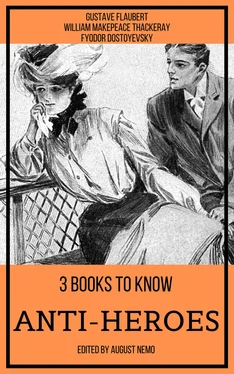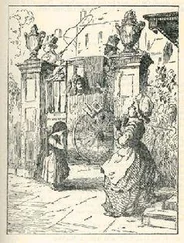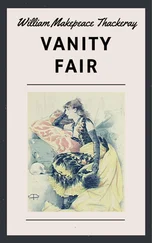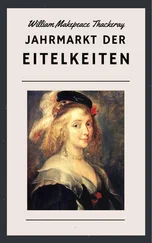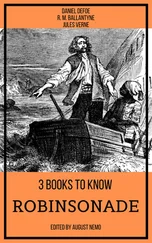‘Such were the mysterious orders Prince Victor gave his page; and Weissenborn, selecting for his comrade in the expedition Lieutenant Bartenstein, set out on his strange journey.
‘All this while the palace was hushed, as if in mourning, the bulletins in the COURT GAZETTE appeared, announcing the continuance of the Princess’s malady; and though she had but few attendants, strange and circumstantial stories were told regarding the progress of her complaint. She was quite wild. She had tried to kill herself. She had fancied herself to be I don’t know how many different characters. Expresses were sent to her family informing them of her state, and couriers despatched PUBLICLY to Vienna and Paris to procure the attendance of physicians skilled in treating diseases of the brain. That pretended anxiety was all a feint: it was never intended that the Princess should recover.
‘The day on which Weissenborn and Bartenstein returned from their expedition, it was announced that her Highness the Princess was much worse; that night the report through the town was that she was at the agony: and that night the unfortunate creature was endeavouring to make her escape.
‘She had unlimited confidence in the French chamber-woman who attended her, and between her and this woman the plan of escape was arranged. The Princess took her jewels in a casket; a private door, opening from one of her rooms and leading into the outer gate, it was said, of the palace, was discovered for her: and a letter was brought to her, purporting to be from the Duke, her father-in-law, and stating that a carriage and horses had been provided, and would take her to B——: the territory where she might communicate with her family and be safe.
‘The unhappy lady, confiding in her guardian, set out on the expedition. The passages wound through the walls of the modern part of the palace and abutted in effect at the old Owl Tower, as it was called, on the outer wall: the tower was pulled down afterwards, and for good reason.
‘At a certain place the candle, which the chamberwoman was carrying, went out; and the Princess would have screamed with terror, but her hand was seized, and a voice cried “Hush!” The next minute a man in a mask (it was the Duke himself) rushed forward, gagged her with a handkerchief, her hands and legs were bound, and she was carried swooning with terror into a vaulted room, where she was placed by a person there waiting, and tied in an arm-chair. The same mask who had gagged her, came and bared her neck and said, “It had best be done now she has fainted.”
‘Perhaps it would have been as well; for though she recovered from her swoon, and her confessor, who was present, came forward and endeavoured to prepare her for the awful deed which was about to be done upon her, and for the state into which she was about to enter, when she came to herself it was only to scream like a maniac, to curse the Duke as a butcher and tyrant, and to call upon Magny, her dear Magny.
‘At this the Duke said, quite calmly, “May God have mercy on her sinful soul!” He, the confessor, and Geldern, who were present, went down on their knees; and, as his Highness dropped his handkerchief, Weissenborn fell down in a fainting fit; while MONSIEUR DE STRASBOURG, taking the back hair in his hand, separated the shrieking head of Olivia from the miserable sinful body. May Heaven have mercy upon her soul!’
This was the story told by Madame de Liliengarten, and the reader will have no difficulty in drawing from it that part which affected myself and my uncle; who, after six weeks of arrest, were set at liberty, but with orders to quit the duchy immediately: indeed, with an escort of dragoons to conduct us to the frontier. What property we had, we were allowed to sell and realise in money; but none of our play debts were paid to us: and all my hopes of the Countess Ida were thus at an end.
When Duke Victor came to the throne, which he did when, six months after, apoplexy carried off the old sovereign his father, all the good old usages of X——were given up,—play forbidden; the opera and ballet sent to the right-about; and the regiments which the old Duke had sold recalled from their foreign service: with them came my Countess’s beggarly cousin the ensign, and he married her. I don’t know whether they were happy or not. It is certain that a woman of such a poor spirit did not merit any very high degree of pleasure.
The now reigning Duke of X——himself married four years after his first wife’s demise, and Geldern, though no longer Police Minister, built the grand house of which Madame de Liliengarten spoke. What became of the minor actors in the great tragedy, who knows? Only MONSIEUR DE STRASBOURG was restored to his duties. Of the rest—the Jew, the chamber-woman, the spy on Magny—I know nothing. Those sharp tools with which great people cut out their enterprises are generally broken in the using: nor did I ever hear that their employers had much regard for them in their ruin.
CHAPTER XIII. I CONTINUE MY CAREER AS A MAN OF FASHION
––––––––
I FIND I HAVE ALREADY filled up many scores of pages, and yet a vast deal of the most interesting portion of my history remains to be told, viz. that which describes my sojourn in the kingdoms of England and Ireland, and the great part I played there; moving among the most illustrious of the land, myself not the least distinguished of the brilliant circle. In order to give due justice to this portion of my Memoirs, then,—which is more important than my foreign adventures can be (though I could fill volumes with interesting descriptions of the latter),—I shall cut short the account of my travels in Europe, and of my success at the Continental Courts, in order to speak of what befell me at home. Suffice it to say that there is not a capital in Europe, except the beggarly one of Berlin, where the young Chevalier de Balibari was not known and admired; and where he has not made the brave, the high-born, and the beautiful talk of him. I won 80,000 roubles from Potemkin at the Winter Palace at Petersburg, which the scoundrelly favourite never paid me; I have had the honour of seeing his Royal Highness the Chevalier Charles Edward as drunk as any porter at Rome; my uncle played several matches at billiards against the celebrated Lord C——at Spa, and I promise you did not come off a loser. In fact, by a neat stratagem of ours, we raised the laugh against his Lordship, and something a great deal more substantial. My Lord did not know that the Chevalier Barry had a useless eye; and when, one day, my uncle playfully bet him odds at billiards that he would play him with a patch over one eye, the noble lord, thinking to bite us (he was one of the most desperate gamblers that ever lived), accepted the bet, and we won a very considerable amount of him.
Nor need I mention my successes among the fairer portion of the creation. One of the most accomplished, the tallest, the most athletic, and the handsomest gentlemen of Europe, as I was then, a young fellow of my figure could not fail of having advantages, which a person of my spirit knew very well how to use. But upon these subjects I am dumb. Charming Schuvaloff, black-eyed Sczotarska, dark Valdez, tender Hegenheim, brilliant Langeac!—ye gentle hearts that knew how to beat in old times for the warm young Irish gentleman, where are you now? Though my hair has grown grey now, and my sight dim, and my heart cold with years, and ennui, and disappointment, and the treachery of friends, yet I have but to lean back in my arm-chair and think, and those sweet figures come rising up before me out of the past, with their smiles, and their kindnesses, and their bright tender eyes! There are no women like them now—no manners like theirs! Look you at a bevy of women at the Prince’s, stitched up in tight white satin sacks, with their waists under their arms, and compare them to the graceful figures of the old time! Why, when I danced with Coralie de Langeac at the fetes on the birth of the first Dauphin at Versailles, her hoop was eighteen feet in circumference, and the heels of her lovely little mules were three inches from the ground; the lace of my jabot was worth a thousand crowns, and the buttons of my amaranth velvet coat alone cost eighty thousand livres. Look at the difference now! The gentlemen are dressed like boxers, Quakers, or hackney-coachmen; and the ladies are not dressed at all. There is no elegance, no refinement; none of the chivalry of the old world, of which I form a portion. Think of the fashion of London being led by a Br-mm-l! [Footnote: This manuscript must have been written at the time when Mr. Brummel was the leader of the London fashion.] a nobody’s son: a low creature, who can no more dance a minuet than I can talk Cherokee; who cannot even crack a bottle like a gentleman; who never showed himself to be a man with his sword in his hand: as we used to approve ourselves in the good old times, before that vulgar Corsican upset the gentry of the world! Oh, to see the Valdez once again, as on that day I met her first driving in state, with her eight mules and her retinue of gentlemen, by the side of yellow Mancanares! Oh, for another drive with Hegenheim, in the gilded sledge, over the Saxon snow! False as Schuvaloff was, ‘twas better to be jilted by her than to be adored by any other woman. I can’t think of any one of them without tenderness. I have ringlets of all their hair in my poor little museum of recollections. Do you keep mine, you dear souls that survive the turmoils and troubles of near half a hundred years? How changed its colour is now, since the day Sczotarska wore it round her neck, after my duel with Count Bjernaski, at Warsaw.
Читать дальше
